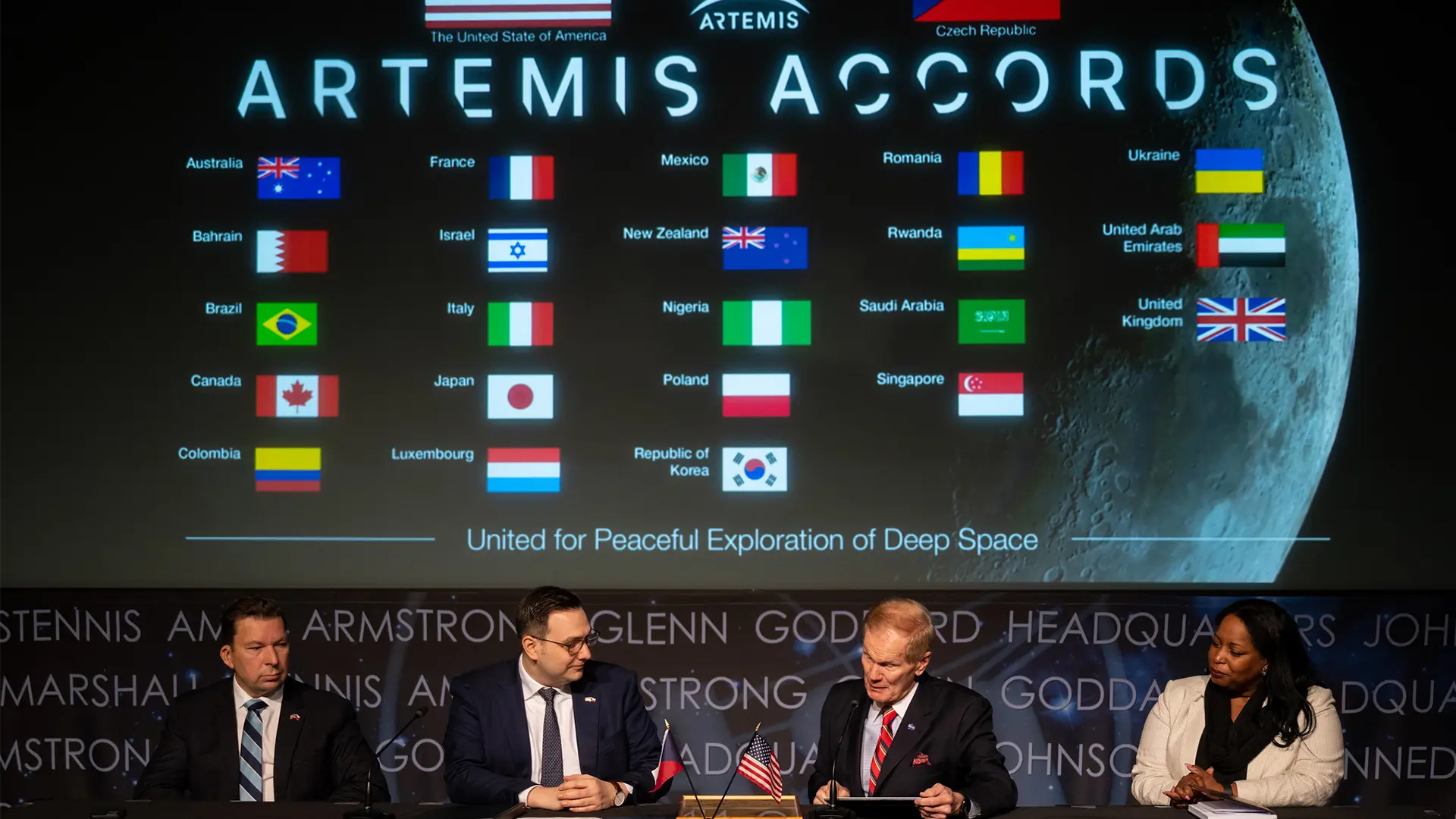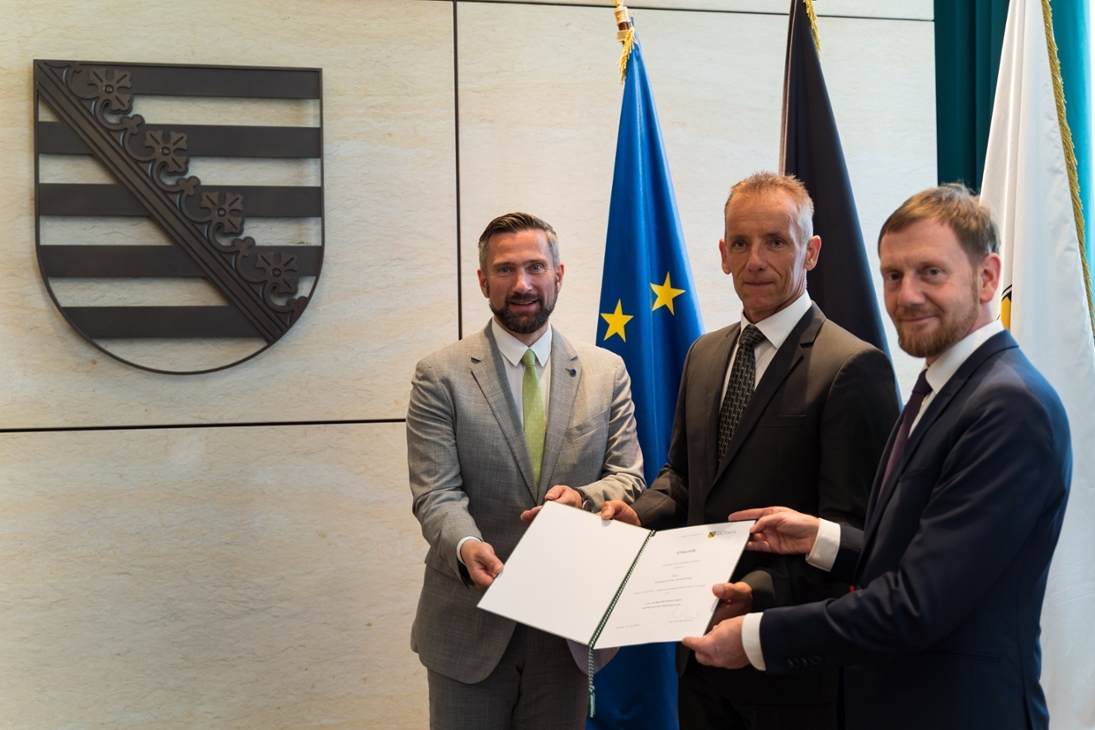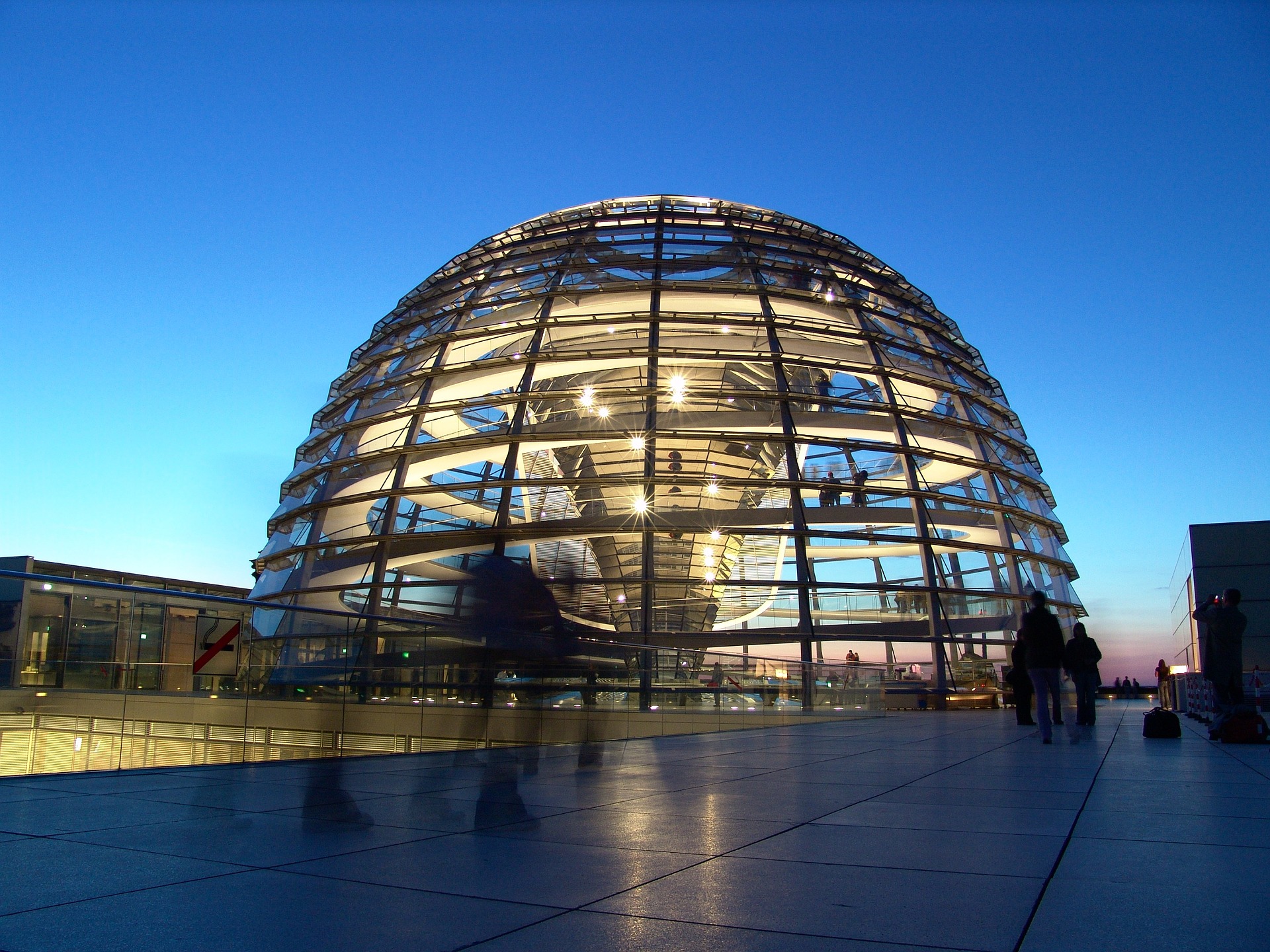
Stop Cutting the Space Budget: German space SMEs send open letter to Chancellor Scholz
Published on Tue, 08.08.2023 – 08:50 CEST in Politics, covering VerwaltungTime and again, politicians from (almost) all parties seek contact with space companies. But these visits often leave a bitter taste. All in all, they often end up with glossy pictures of "space technology made in Germany". While this looks good for both sides in press releases and social media posts, it leads to frustration in the industry. When it became known that Germany's space budget would be cut, the Arbeitskreis Raumfahrt-KMU reacted strongly. In an open letter to Chancellor Olaf Scholz, 45 German space companies urged him not to make a strategic mistake and to increase the budget instead.
Cutting the space budget is a major strategic mistake
– Open Letter to the German Chancellor –
Honorable Chancellor,
We have heard in the press that Germany wants to cut its space budget. We in the space industry consider this a serious strategic mistake! Since space is one of the biggest strategic cross-cutting issues, we ask you as Chancellor to counteract this plan and instead spend 2.40 Euros MORE per German citizen per year on space.
These are the reasons:
Space is strategic positioning and a market of the future:
- The technological capability to conduct space flight is meanwhile a globally recognized STRATEGIC CAPABILITY.
- This is particularly relevant in areas such as global communications, earth observation, navigation, launchers, security and defense.
- Not only in the field of satellite and rocket launchers, but also in the supplier industry, Germany has developed outstanding competencies and thus great potential in recent years.
- In addition to institutional missions, space flight has also gained a large number of commercial missions.
- As a result, the space industry is a rapidly growing economic factor.
- It must be protected, promoted and expanded for reasons of national sovereignty.
Governments around the world are increasing their space budgets:
- All over the world, governments are increasing their investments in space in order to provide their industries with the best possible conditions and to gain strategic weight in world politics through industrial strength.
- On the other hand, the German Federal Ministry of Economics and Climate Protection, as the coordinator of space issues in Germany, is planning CUTS in the national space program (- 60 million EUR) and also for the European communications program IRIS2 (- 120 million EUR), which will be one of the most important strategic infrastructures in Germany.
- Italy, for example, has recently allocated an additional EUR 1.9 billion over the next 4 years from the EU's COVID recovery fund (so a large part comes directly from Germany!). France is also increasing significantly. USA, China, India, Korea, Taiwan, Emirates, Turkey, etc., all major countries are increasing their space budgets.
- Germany currently spends a total of 1.8 billion Euros per year on space (ESA and national space program, not including R&D at DLR institutes), which is only 22 Euros per German citizen per year.
- By comparison, France currently spends more than EUR 3 billion per year on space, or EUR 45 per citizen.
Strengthening Germany's influence and location through space flight:
- To be able to participate in European and global missions on an equal footing in the future, Germany would currently have to invest at least EUR 200 million more in the national program.
- This is the minimum necessary to keep up with global competition.
- With just an additional EUR 2.40 per year per German citizen, Germany could adequately position itself as a complement to the ESA and EU programs in the economic and strategic areas of component suppliers, small satellite systems and microlaunchers.
- We, the entrepreneurs of the German space industry with our more than 2,500 employees, pledge to devote our full innovative strength to space in order to maintain and expand our global competitiveness and to be able to offer additional jobs in this high-tech sector in Germany in the future.
Negative consequences of the current plans are foreseeable:
- Cutting budgets now would drastically reduce Germany's ability to engage in strategic partnerships in Europe and around the world in the long term, make efficient climate protection more difficult, and squander the potential for tax revenues.
- The signal that budget cuts would send to the high-tech sector would be fatal: investors would withdraw or prioritize other countries.
- At the same time, urgently needed new skilled workers and young talent from abroad will be attracted to other European countries.
- The export of systems and components will not be concentrated in Germany, but in the countries with the best technologies or the best breeding grounds.
- In Europe, France and Italy will achieve or expand their leading positions in the strategically important areas of communications, earth observation and launchers.
- Germany would run the risk of not participating in the global growth of space.
People's enthusiasm for space flight:
Space offers efficient solutions to many global problems. Strengthening the space sector, supported by the highest political authorities and communicated in the right way, would certainly meet with broad approval among the German public, most of which is enthusiastic about technology. It would also be a clear signal that Germany is positioning itself for the challenges of the future. Space travel generates enthusiasm and has a positive impact on other areas. Today, however, it is other space topics that should be given priority. What used to be the moon landing or the ISS is now communications, Earth observation and security. Compared to the dominant German budget and industry funding, even the current budget for space is only a marginal contribution, especially compared to the very large benefits.
That is why we recommend:
- Immediately say a CLEAR NO to cutting the space budget.
- Combine the interests of the Chancellor's Office with those of the Ministry of Economics and Climate Change, the Ministry of the Interior and Community, the Foreign Office, the Ministry of Agriculture, the Ministry of Education and Research, and the Ministry of Defense.
- A clear YES to strengthening the space sector in Germany.
Yours sincerely
Ernst K. Pfeiffer
(Spokesman of the Space SME Working Group)
AKRK – Arbeitskreis Raumfahrt-KMU
The AKRK (Arbeitskreis Raumfahrt-KMU) has 45 German member companies (start-ups and established SMEs) with more than 2,500 employees. It represents the interests of German - and partly also all European - SMEs in the space sector and regularly communicates with German ministries, the German Space Agency (DLR), ESA, the European Commission, SME4Space, the European LSIs (Airbus, Thales, OHB), European midcaps, BDI and BDLI. It is the only independent association of space SMEs in Europe.
Among others, NewSpace companies such as Astrofein, Berlin Space Technologies, HPS, Isar Aerospace, Mynaric or Reflex Aerospace have signed the Open Letter. However, the German Chancellor has yet to respond. In an article entitled "Impulses for German Space Policy" (German), which was published as recently as November 2022, the German Federal Ministry of Economics and Climate Protection (BMWK) comes to the following conclusion: "Germany must set itself ambitious goals in its new space strategy, for which the right course must be set now." The actual amount of the German space budget will not be decided until the fourth quarter of 2023. How much space is really worth to the German government will become clear then.













